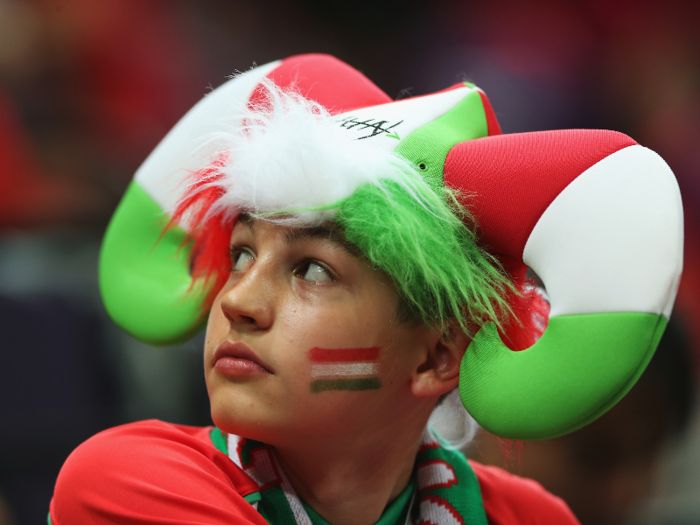- Home
- slideshows
- miscellaneous
- 9 of the hardest languages for English speakers to learn
9 of the hardest languages for English speakers to learn
Japanese

Arabic

Native speakers: 315 million
Where it's spoken: Throughout the Middle East and northern and northeast Africa
Why it's hard: Reading Arabic can be immensely difficult for English speakers: It's written in a different alphabet, usually omits vowels, and has very few words in common with English.
Mandarin

Native speakers: 909 million
Where it's spoken: Northern and southwestern China
Why it's hard: Mandarin is a tonal language, meaning the intonation you put on a word can change its meaning. For example, the syllable "ba" could mean either "eight," "pull out," "hold," or "dad" depending on which tone you use.
Mandarin also has a complex writing system with thousands of characters. For the world's most spoken language, there's a high barrier to entry to achieve competency.
Cantonese

Native speakers: 59 million
Where it's spoken: South China, Hong Kong, Macau
Why it's hard: Like Mandarin, Cantonese is also a tonal language. Except in Cantonese, there are eight different tones you can use to pronounce a word — double the amount in Mandarin.
Korean

Native speakers: 77 million
Where it's spoken: South Korea, North Korea
Why it's hard: One aspect of Korean that is difficult for English speakers is the pronunciation — double consonants are pronounced differently than single consonants, for example. On top of that, Korean has a complex grammar system that requires formal or informal markers, and a different word order that places verbs at the end of the sentence.
Hungarian

Native speakers: 13 million
Where it's spoken: Hungary
Why it's hard: Hungarian grammar is built around the case system — there are 18 noun cases that dictate how to certain words are combined and inflected. On top of that, the language has several vowels (á, é, í, ó, ö, ő, ú, ü, ű) and consonants (cs, gy, ly, ny, ty, sz, zs) that can prove tricky for English speakers to articulate.
Vietnamese

Native speakers: 68 million
Where it's spoken: Vietnam
Why it's hard: Vietnamese is a tonal language with six different tones that dictate the meaning of a word. The high number of vowel sounds also prove difficult for English speakers to nail down.
As for the grammar, Vietnamese has more pronouns than English and uses a system of "classifiers" — special words that modify nouns in certain contexts — that English speakers would not have exposure to. As the saying goes, "The hardships of struggling with a violent storm don't compare to the hardships of mastering Vietnamese grammar."
Xhosa

Native speakers: 8 million
Where it's spoken: South Africa, Zimbabwe, Lesotho
Why it's hard: Xhosa is one of many African languages that uses click consonants. It has 18 clicks that get articulated in three different places: the back of the teeth, the roof of the mouth, and the side of the mouth.
Additionally, Xhosa is a tonal language with two tones, high and low. Speakers must indicate one of 15 noun cases that must agree with the noun's gender. And Xhosa is what linguists call an "agglutinative" language — it has tons of prefixes and suffixes that get attached to words in certain contexts.
Icelandic

Native speakers: 350,000
Where it's spoken: Iceland
Why it's hard: Like other languages on this list, Icelandic has a case system that assigns different word endings to express the grammatical role of a word. For example, according to Quora user Atli Geir Lárusson, "here is a horse," "about a horse," "from a horse," and "to a horse" are translated as "hér er hestur," "um hest," "frá hesti," and "til hests," respectively.
Popular Right Now
Popular Keywords
Advertisement